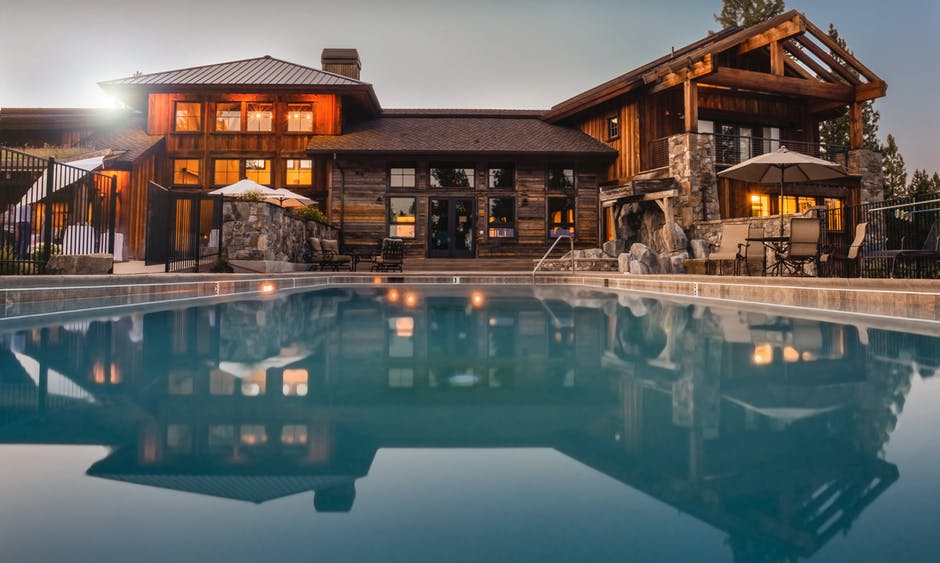If you’re one of the 16% of Americans who have a residential pool on their property, you know how great the benefits can be. Whether it’s cooling down on a hot summer day, or enjoying evening cocktails with friends, having a pool at home is the perfect way to enjoy outdoor living.
Of course, having a pool at home also means taking the proper steps to maintain it. So what about when it’s time for closing a pool for the season?
If you’re ready to winterize your pool, keep reading to learn how to get started.
1. Give it a Good Clean
Before you wrap the pool up for the winter, it’s important that it’s as clean as can be. This will prevent stains from getting set in over the winter.
Skim out any debris, or use a pool vacuum. You will also want to clean the walls of the pool with a pull brush. This will help kick up any lingering sediment, which your vacuum can then suck up.
When you’re cleaning, don’t forget to clean out the filter. You’ll be glad when you open the pool next spring.
You also want to make sure to clean out the lines to the pool. During the winter, the water in these lines can freeze and expand, which can cause damage. Even if your area has mild winters, it’s a good idea to clean out any excess water in case of a cold snap.
You can either empty the lines completely and plug them, or you can add antifreeze to them. If you use antifreeze, consult the manufacturer’s directions to make sure you don’t cause any damage.
2. Balance the Water
Even throughout the season, it’s important to keep a pool’s pH level, or its proportion of alkali to acid, in balance. Experts usually recommend keeping the pH between 7.2 and 7.8.
If the pH is out of balance, it can cause skin irritation or damage to the siding and pool equipment. Since it will be sitting unused all winter, it’s important that the water is balanced to prevent any damage. The level will decrease over time, so it’s best to be at the higher end of the range.
While you are testing the pool’s pH, you should also check the chlorine levels. It should be below five parts per million. If the chlorine level is too high, it could damage other chemicals that you place in the water.
3. Add Winterizing Chemicals, and Shock It
Adding winterizing chemicals to your pool will help maintain the water in good condition throughout the winter. Make sure to choose anti-algae chemicals to prevent algae from growing over the winter. Algae will clog your filter, and can even make the chlorine have to work harder.
You will also need to shock the pool before you close it. Shocking essentially means adding concentrated chlorine to sanitize the pool. This will also help kill any harmful algae growing.
Also, you should investigate to see whether your water has high levels of metal in it. Metals are most common in pools that get water from a well. If your pool does have high levels of metal, you’ll want to use a metal sequestrant to address it.
4. Do Not Empty the Pool
Some people think that draining the pool at the end of the season is the way to go. In reality, this is one of the worst things you could do.
First of all, emptying the pool could actually void any warranty that you happen to have. Additionally, being empty of water can put a strain on the pool structure and cause damage to it.
5. Winterize the Pump and Filter
Next, you will want to want to detach the pool pump and plug all of the drain plugs. Do the same with all of the hoses.
Once you have everything detached, place it inside for the winter. This will help extend the life of the equipment. Make sure to keep everything together so you don’t have to go hunting for it in the spring.
Then, make sure to drain your filter and to rinse it off completely. Move any hardware indoors for the winter. This will prevent the materials from being damaged by cold weather.
6. Clean and Stash Your Accessories
Anyone who has a pool knows that there is more to the pool than just the pool itself. There are floats, pool chairs, and pool toys.
Make sure that everything is removed from the pool and pool area, and clean it off. Just like your pump and the hardware for your filter, store everything inside to keep it in good condition.
7. Cover the Pool
Covering the pool prevents leaves and other debris from building up in the pool over the wintertime. Not only that but keeping the pool covered can actually help keep the pH balanced until you are ready to use it again in the summer.
When you cover the pool, don’t forget to cover the skimmer as well. A skimmer cover will cover the entire skimmer and protect it from the elements. This will prevent rain from getting in and covering the skimmer, which could cause freezing and damage.
Closing a Pool for the Season: Get Started Today
With these tips in hand, you will be ready to start the process of closing a pool for the season.
Are you still considering whether you should put in a pool on your property? Contact us today for a free consultation to get started.




